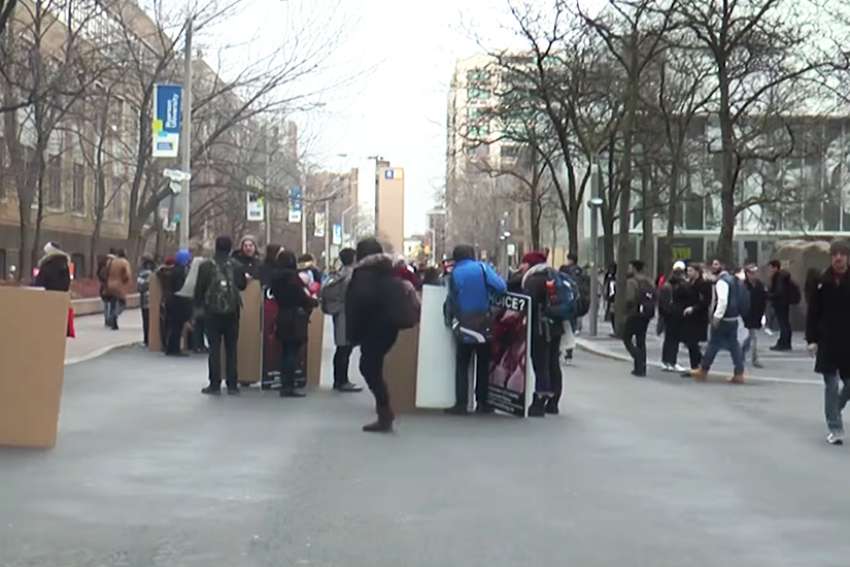Devorah Gilman, eastern outreach director of the CCBR, said photographs and persistence are key elements for the pro-life movement to be successful.
She outlined past human rights issues such as slavery and segregation, as well as the more recent Syrian refugee crisis, during a presentation at the Toronto Right to Life (TRTL) annual general meeting Dec. 4.
The famous photo of a Syrian child’s body washed up on a beach in Turkey in 2015 raised awareness on refugee issues and “our country and policies have been changed because of (it),” Gilman said.
In the same way, she said, showing photos of aborted babies can show the truth and change people’s opinions about abortion.
The group has run into opposition for its literature. In the summer, some Toronto residents complained about flyers delivered to their homes depicting fetuses and post-abortion images.
Gilman defended the flyers, telling Global News “if we want to stand up for justice … the most effective way is by providing people the photographic evidence of what abortion truly is.”
The TRTL public meeting brought group members together to discuss the importance of advocacy, especially in review of the past year, and discuss any questions. TRTL has an education team that visits high schools across the Toronto area and trains students to have effective dialogue with members of the public.
Last year, it launched Toronto Against Abortion at Ryerson University, which involves pro-life outreach. The students hold signs that show photos of both healthy and aborted babies. Recently, they have faced backlash from pro-choice students on campus, who attempt to cover the pro-life signs and warn students when the group is demonstrating.
The Ryerson Students’ Union has denied club status to pro-life groups, pointing to its policy that states “no RSU resources, space, recognition or funding will be allocated to enhance groups/individuals whose primary/sole purpose is anti-choice activities.”
Ryerson is one of many cases of pro-life censorship in post-secondary schools. This year, University of Toronto Students for Life (UTSFL) was denied renewal of its club status by the school’s student union. It prevented them from booking a table at the St. George Street Festival, where clubs can set up displays and recruit new members.
UTSFL education co-ordinator Blaise Alleyne said they are active regardless.
“This is why we went to the sidewalks out front, to run activism where we didn’t need (the union’s) permission and were even more visible than if we’d had a table,” he said in an email. He expects the club’s status to be renewed when it reapplies.
The University of Ottawa Institute of Technology recently banned a pro-life group due to its views. This earned school a grade of ‘F’ on the 2017 Campus Freedom Index (CFI), which rates universities in terms of free speech policies and practices. Other schools condemned in the CFI for similar censorship in recent years include the University of Calgary and Trent University.
Despite these challenges, advocates have hope in their outreach.
“We know that when people see the evidence, it’s made clear and visible, so (they) can’t deny what abortion does,” said Matthew Battista, the president of UTSFL. Young people are the best advocates on campus because they can reach their peers, he said.
Even though students are busy with school work and their lives, many “still find time and have passion to fight for the human rights of pre-born children.”
(Gilmor, 19, is a second-year journalism student at Ryerson University in Toronto.)

